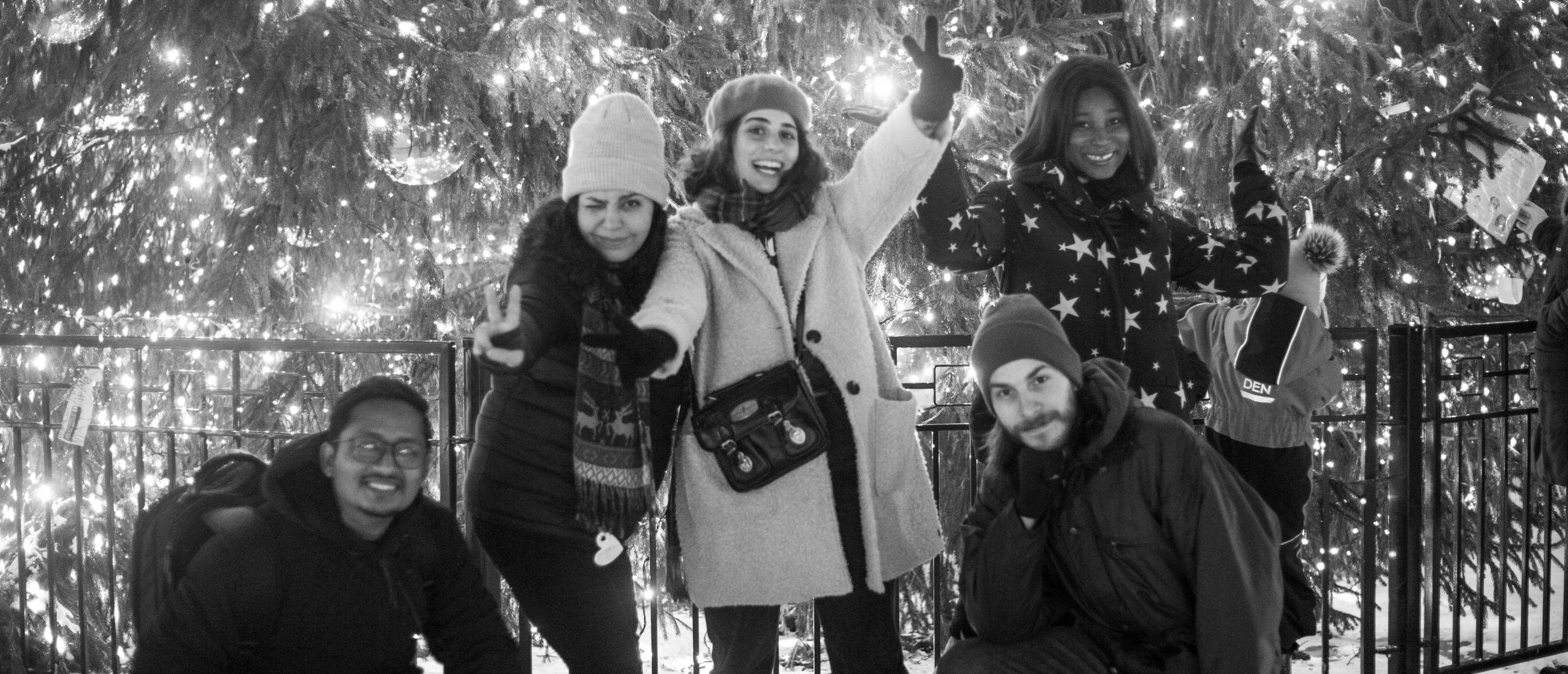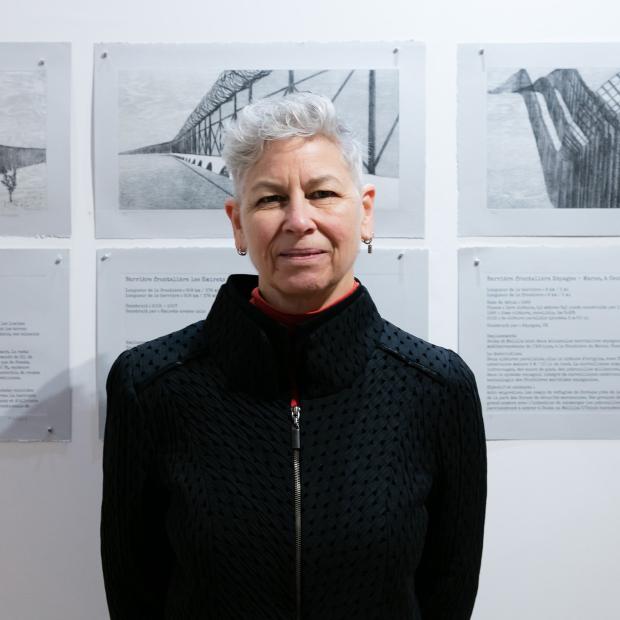“Intercultural Communication courses are designed to help students overcome culture shock and all the obstacles smoothly and happily!”

After postponing my studies for a year due to pandemic travel restrictions in 2020, the second worst-case scenario for me could have been to end up in a group of locals rather than international groupmates. Luckily, this did not happen, and most of my groupmates are from various cultures with whom I had never had personal contact before. For the record, I have nothing against Estonians; I have just always dreamed of studying abroad and being surrounded by people from all over the world so that I can learn about different cultures while pursuing a degree with them.
So, now let me introduce myself: my name is Amaliya, and I am a Tallinn University international student pursuing a master's degree in Communication Management. I am from Armenia, and the reason why I have always desired to live in a multicultural environment is that Armenia is a mono-ethnic, monolingual, monocultural, and mono-religious nation. While I prefer variety, value diversity, enjoy changes and different perspectives, and cannot breathe being surrounded by only one opinion. It is not the case with all monoethnic countries' representatives; many are content to be monocultural; it is only my difficulty that I do not fit into the monocultural society. Therefore, I truly enjoyed learning communication-related courses, and more importantly, engaging in-group projects with my peers from various nationalities.
To begin, I would like to point out that living abroad and meeting individuals from various cultures is nothing new for me. In 2017, I participated in an Erasmus+ one-year voluntary project in Lithuania, where I made numerous new friends, though the majority of them were from other European nations, putting me in the same European circle. I also actively travelled throughout Europe, seeing more than 30 countries. As a result, I had lacked experience communicating with individuals from outside the EU; yet the best thing is that I received what I needed in 2021: now my two EU groupmates are from Estonia and the neighbour Finland, while the others are from other continents and regions.
For example, I have never teamed or collaborated with anyone from Africa, and I could even generalize all and say "Africans." While randomly, in the Basics of Intercultural Communication course, I was assigned to a group with a Zimbabwean. Through meeting Patience and working closely with her, I learned about the diversity and exceptionality of African cultures, given that I also study with Nigeriens and Cameroonians in the larger group. We were three in this telecollaboration working group, and the third member was Prinsha from Nepal, a student from the University of Louisiana Monroe (ULM). I was also overjoyed to have a Nepali in my group, as I see the "made in Nepal" label on my favourite backpack almost every day, but I have never had a real connection to this nation. Is not this amusing? Because finally, I have met somebody from Nepal, every time I see this label on the front of my backpack, I think about Prinsha, and a grin appears on my face.
All the above are great examples of cross-cultural communication, which was thought academically and practically through these collaborations. We all realized how similar and different we are, and that the similarities made us feel closer and closer to each meeting. We spent hours chatting and highlighting both the positive and negative aspects of our cultural identities. Surprisingly, we learned that the things, which make us feel like an outsider in our society, bring the three of us closer together: fighting for women's rights, avoiding high power distance at work, and appreciating the individualistic culture of the countries where we are currently living.
As expatriates, we are now in the first stage of noticing the cultural differences between our countries of origin and the countries where we are currently residing. Talking about varieties enabled us to identify the term culture and have a better understanding of ourselves. These discussions were like therapy, and we appreciated each meeting and assignment that forced us to dive deeper into our cultures and examine them academically. I believe that such communication courses are valuable and vital to study since they teach you about people's behaviour, help you understand their motivation, intention, learn about their history and see their future.
Apart from the telecollaboration group, during the first semester, I also worked with some of my peers of TLU and had a face-to-face grout task to complete while learning about Estonian culture and the Christmas celebration. Observing the multiculturalism of the Estonian Christmas market assignment surprised me the most because I learned how diverse Christmas preparations can be for other countries and how they might be even completely absent in some of them. I was astounded to learn that some of my groupmates were seeing Christmas trees for the first time and that they had only seen such decorations in movies. Apart from being Armenian, I have also been in many Christmas markets in different big cities, while now I realize that few people had such experience and that some of the international students are experiencing all of this for the first time in their life. Knowing that many nations do not celebrate Christmas or New Year on the same day and in the same style and meeting those individuals, who live differently next to you, are two very different things.
To summarize, I can say that the Communication Management MA program develops individuals who respect the cultures of others, are aware of differences and similarities, and celebrate the uniqueness of those around them. We are a group of students in this program that come from all backgrounds and occupations, but we all share a passion for communication and working in foreign cultures.
I am grateful to be living in Estonia, where I am surrounded not only by locals but also by individuals from other cultures who give me the feeling of living in a borderless world and as a cosmopolitan citizen.
